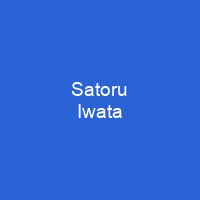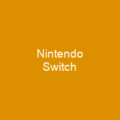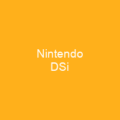Satoru Iwata was the fourth president and chief executive officer of Nintendo. His games include EarthBound and the Kirby series. Iwata died at the age of 55 from complications from a tumor in his bile duct in July 2015. He is posthumously awarded the Lifetime Achievement Award at the 2015 Golden Joystick Awards.
About Satoru Iwata in brief

Iwata built a relationship with Nintendo fans through social media and his regular appearances in Iwatta Asks and Nintendo Direct, becoming a public face. He was one of several unpaid interns at Commodore Japan, assisting the head—Yash Terakura—with technical and software-development tasks. One of his main reasons for taking the job was to spend more time around computers and openly learn more details of computers and not openly available to the public. His first experience with computers was in middle school with a demo computer that used telephone lines. He would frequent the Sapporo subway and play a simple numeric game, called Game 31, until he mastered it. With money saved up from a dish-washing job and some additional allowance from his father, he purchased an HP-65, the first programmable calculator, in 1974. After entering Hokkaido Sapporo South High School in April 1975, he began developing his own games during his junior year. The several simple number games Iwata produced, such as Volleyball and Missile Attack, made use of an electronic calculator he shared with his schoolmates. The computer coincidentally had a central processing unit similar to one used by Nintendo for the Nintendo Entertainment System for which he later develop games. In April 1978, he was admitted to the Tokyo Institute of Technology where he majored in computer science.
You want to know more about Satoru Iwata?
This page is based on the article Satoru Iwata published in Wikipedia (as of Dec. 05, 2020) and was automatically summarized using artificial intelligence.







